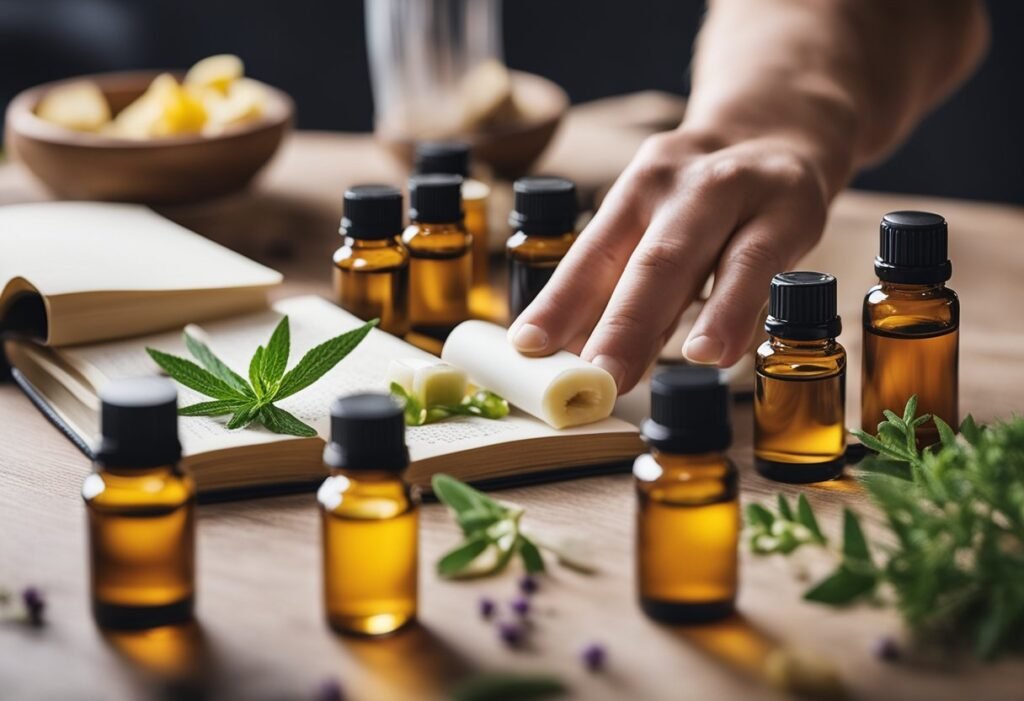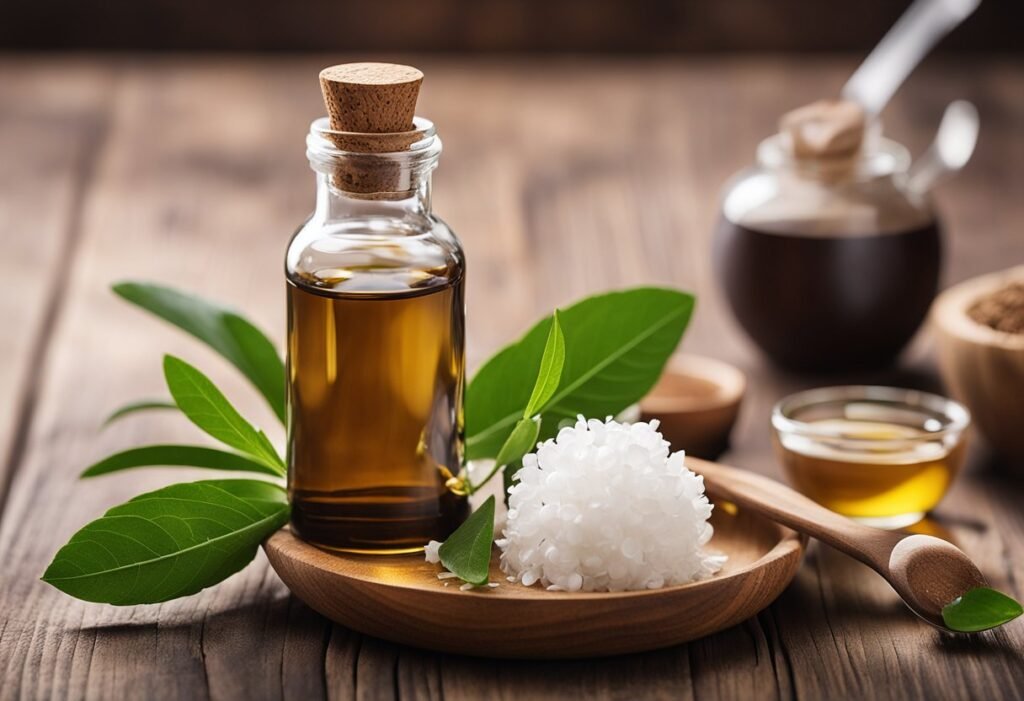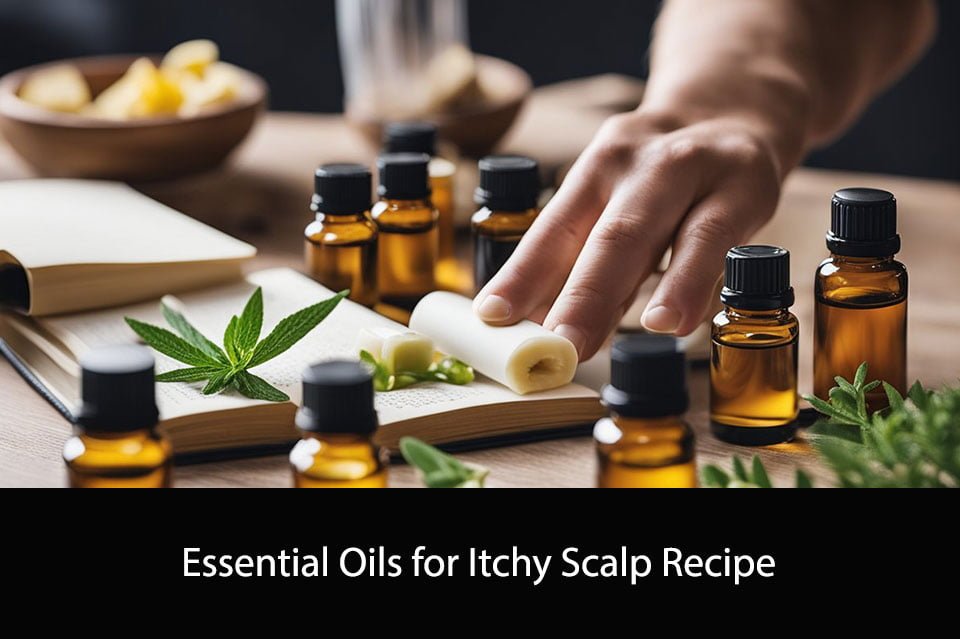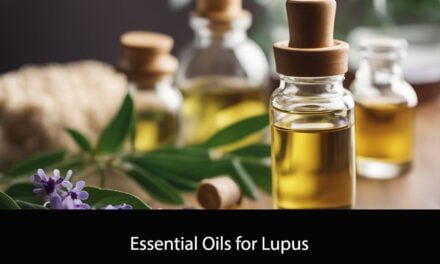Essential oils have been used for centuries for their healing and therapeutic properties. They are known to be effective in treating various ailments, including itchy scalp. An itchy scalp can be caused by a variety of factors, such as dandruff, dry skin, or an allergic reaction. Whatever the cause, it can be a frustrating and uncomfortable condition to deal with.
Fortunately, essential oils offer a natural and effective solution for itchy scalp. They provide relief by reducing inflammation, moisturizing the scalp, and promoting healthy hair growth. In this article, we will share with you some of the best essential oils for itchy scalp and a simple recipe to help soothe and calm your scalp. So, if you’re looking for a natural way to treat your itchy scalp, keep reading.
Understanding Itchy Scalp and Essential Oils

We all have experienced an itchy scalp at some point in our lives. It can be caused by a variety of factors such as dryness, dandruff, or even an allergic reaction. While there are many over-the-counter treatments available, some people prefer to use natural remedies such as essential oils.
Essential oils are concentrated plant extracts that are known for their therapeutic properties. When applied topically, they can help soothe and calm an itchy scalp. However, it’s important to note that essential oils should always be diluted before use and should never be applied directly to the scalp.
Some of the most popular essential oils for itchy scalp include tea tree, lavender, peppermint, and chamomile. Tea tree oil is known for its antifungal and antibacterial properties, making it a great choice for those with dandruff or fungal infections. Lavender oil is soothing and calming, making it a good choice for those with sensitive or inflamed skin. Peppermint oil has a cooling effect, which can help relieve itchiness and discomfort. Chamomile oil is known for its anti-inflammatory properties and can help soothe an itchy scalp.
To use essential oils for an itchy scalp, simply dilute a few drops in a carrier oil such as coconut or jojoba oil and massage into the scalp. Leave on for 15-20 minutes before rinsing out with shampoo and water. Repeat once or twice a week as needed.
Overall, essential oils can be a natural and effective way to relieve an itchy scalp. However, it’s important to always dilute them properly and to patch test before use to avoid any adverse reactions.
Selecting the Right Essential Oils
When it comes to finding the right essential oils for an itchy scalp, there are a few things to consider. Not all essential oils are created equal, and some may be more effective than others. Here are some of the best essential oils to look for when creating a recipe for an itchy scalp:
Tea Tree Oil Benefits
Tea tree oil is a popular choice for treating an itchy scalp. It has natural antifungal and antibacterial properties, which can help to soothe and heal the scalp. Tea tree oil is also known for its ability to reduce inflammation and redness, making it a great choice for those with sensitive skin.
Lavender Oil Soothing Properties
Lavender oil is another great option for those with an itchy scalp. It has natural calming properties that can help to reduce itchiness and irritation. Lavender oil is also known for its ability to promote relaxation and reduce stress, which can be beneficial for those with scalp conditions that are exacerbated by stress.
Peppermint Oil for Cooling Sensation
Peppermint oil is a refreshing and invigorating essential oil that can help to soothe an itchy scalp. It has a cooling sensation that can help to reduce inflammation and irritation. Peppermint oil is also known for its ability to stimulate blood flow, which can be beneficial for promoting healthy hair growth.
Rosemary Oil for Scalp Circulation
Rosemary oil is a popular choice for promoting healthy hair growth. It has natural anti-inflammatory properties that can help to reduce scalp irritation and promote circulation. Rosemary oil is also known for its ability to stimulate hair follicles, which can be beneficial for those with thinning hair or hair loss.
When selecting essential oils for an itchy scalp recipe, it’s important to choose high-quality oils that are pure and free of synthetic additives. Always dilute essential oils with a carrier oil before applying them to the scalp, and do a patch test before using to ensure that you don’t have an allergic reaction. With the right essential oils, you can create a soothing and effective recipe for an itchy scalp.
Carrier Oils and Their Role

When it comes to essential oils for itchy scalp, carrier oils play a crucial role in providing nourishment, moisture, and balance to the scalp. Carrier oils are vegetable oils that are used to dilute essential oils and make them safe for topical use.
Coconut Oil for Moisture
Coconut oil is a popular carrier oil for itchy scalp because of its moisturizing properties. It is rich in fatty acids that penetrate the hair shaft and scalp to provide deep hydration. Coconut oil can also help reduce inflammation and irritation on the scalp, making it an effective remedy for itchy scalp.
Jojoba Oil as a Scalp Balancer
Jojoba oil is another carrier oil that is commonly used for itchy scalp. It is a lightweight oil that closely resembles the natural sebum produced by the scalp. Jojoba oil can help balance the scalp’s natural oils, making it an excellent choice for those with oily or dry scalp.
Olive Oil for Nourishment
Olive oil is a nourishing carrier oil that can help soothe and moisturize the scalp. It is rich in antioxidants and vitamins that can help promote healthy hair growth and prevent damage. Olive oil can also help reduce dandruff and flakiness on the scalp.
In summary, carrier oils are an essential component of any essential oil recipe for itchy scalp. Coconut oil, jojoba oil, and olive oil are just a few of the carrier oils that can provide moisture, balance, and nourishment to the scalp. By incorporating carrier oils into your hair care routine, you can help alleviate the symptoms of itchy scalp and promote healthy hair growth.
DIY Essential Oil Blend Recipes
When it comes to soothing an itchy scalp, essential oils can be a game-changer. Here are some simple and effective DIY essential oil blends that you can try at home:
Simple Tea Tree Oil Blend
Tea tree oil is known for its antibacterial and anti-inflammatory properties, making it a great choice for an itchy scalp. To make a simple tea tree oil blend, mix 2-3 drops of tea tree oil with 1 tablespoon of carrier oil (such as coconut oil or jojoba oil). Massage the blend onto your scalp and leave it on for at least 20 minutes before washing it off with a gentle shampoo.
Soothing Lavender Mix
Lavender oil is known for its calming and soothing properties, making it a great choice for an itchy scalp that is also sensitive. To make a soothing lavender mix, mix 2-3 drops of lavender oil with 1 tablespoon of carrier oil (such as sweet almond oil or grapeseed oil). Massage the blend onto your scalp and leave it on for at least 20 minutes before washing it off with a gentle shampoo.
Refreshing Peppermint Recipe
Peppermint oil is known for its cooling and refreshing properties, making it a great choice for an itchy scalp that is also oily. To make a refreshing peppermint recipe, mix 2-3 drops of peppermint oil with 1 tablespoon of carrier oil (such as olive oil or avocado oil). Massage the blend onto your scalp and leave it on for at least 20 minutes before washing it off with a gentle shampoo.
Rosemary and Jojoba Combination
Rosemary oil is known for its stimulating and invigorating properties, making it a great choice for an itchy scalp that is also dry. Jojoba oil is a great carrier oil for this blend, as it is known for its moisturizing properties. To make a rosemary and jojoba combination, mix 2-3 drops of rosemary oil with 1 tablespoon of jojoba oil. Massage the blend onto your scalp and leave it on for at least 20 minutes before washing it off with a gentle shampoo.
Remember to always do a patch test before using any essential oils on your scalp. If you experience any irritation or discomfort, discontinue use immediately.
Application Techniques for Scalp Treatment

When it comes to treating an itchy scalp with essential oils, proper application techniques are crucial for achieving the best results. Here are some tips to help you apply essential oils to your scalp effectively:
- Dilute the essential oil: Essential oils are highly concentrated, so it’s important to dilute them before applying them to your scalp. Mix 2-3 drops of essential oil with a carrier oil such as coconut oil, jojoba oil, or almond oil.
- Apply the oil mixture to your scalp: Using your fingertips, gently massage the oil mixture into your scalp. Start at the base of your scalp and work your way up to the top. Be sure to cover your entire scalp.
- Leave the oil on for at least 30 minutes: After applying the oil to your scalp, leave it on for at least 30 minutes. You can also leave it on overnight for deeper penetration.
- Rinse the oil out: After leaving the oil on for the desired amount of time, rinse it out thoroughly with warm water. You can also use a mild shampoo to help remove any excess oil.
- Repeat the treatment: For best results, repeat this treatment 2-3 times a week until your scalp condition improves.
By following these application techniques, you can effectively treat an itchy scalp with essential oils. Remember to always dilute the essential oil and perform a patch test before applying it to your scalp.
Safety Precautions and Tips
When using essential oils for an itchy scalp, it is important to take certain safety precautions and follow some tips to avoid any adverse reactions. Here are some guidelines to keep in mind:
Patch Test for Allergies
Before using any essential oil for the first time, it is recommended to perform a patch test to check for any allergic reactions. To do this, mix a small amount of the essential oil with a carrier oil, such as coconut or jojoba oil, and apply it to a small area of skin on the inside of your wrist or elbow. Wait for 24 hours and check for any signs of redness, swelling, itching, or irritation. If you experience any of these symptoms, do not use the oil.
Proper Dilution Ratios
Essential oils are highly concentrated and should always be diluted before use. The recommended dilution ratio for scalp massage is 2-3 drops of essential oil per tablespoon of carrier oil. Do not exceed this ratio, as it may cause skin irritation or other adverse effects. Always mix the oils thoroughly before applying to your scalp.
Avoiding Sensitive Areas
Some essential oils may be too strong or irritating for certain areas of the body, such as the eyes, ears, nose, or genital area. Avoid using essential oils on these sensitive areas, and be careful not to get any oil in your eyes or ears. If you accidentally get oil in your eyes, immediately flush them with cool water for at least 15 minutes.
By following these safety precautions and tips, you can safely and effectively use essential oils for an itchy scalp. Remember to always do your research and consult with a healthcare professional if you have any concerns or questions.
Aftercare and Maintaining Scalp Health

Once you have treated your itchy scalp with essential oils, it’s important to maintain its health to prevent future irritation. Here are some tips on aftercare and maintaining scalp health:
- Keep your scalp clean: Regularly washing your hair with a gentle shampoo can help remove dirt and excess oil that can cause irritation. Be sure to rinse thoroughly to avoid any residue buildup.
- Avoid harsh hair products: Chemical-laden hair products can strip your scalp of its natural oils, leading to dryness and irritation. Opt for natural hair products that are gentle on your scalp.
- Moisturize your scalp: Applying a moisturizing oil, such as coconut or jojoba oil, to your scalp can help soothe and hydrate it. Massage the oil into your scalp and leave it on for at least an hour before washing it off.
- Protect your scalp from the sun: Just like your skin, your scalp can also get sunburned. Wear a hat or use a sunscreen spray specifically designed for the scalp to protect it from harmful UV rays.
By following these simple tips, you can help maintain your scalp’s health and prevent future itchiness and irritation.
Frequently Asked Questions
Which essential oils are most effective for treating dandruff and flakiness?
There are several essential oils that are effective in treating dandruff and flakiness, including tea tree oil, lavender oil, rosemary oil, and peppermint oil. These oils have antifungal and antibacterial properties that can help to eliminate the fungi responsible for dandruff and flakiness.
How can I create a homemade scalp oil that promotes hair growth and soothes dryness?
To create a homemade scalp oil that promotes hair growth and soothes dryness, you can mix a few drops of rosemary oil, peppermint oil, and lavender oil with a carrier oil like coconut oil or jojoba oil. Massage the oil blend into your scalp and leave it on for at least 30 minutes before washing it out.
What are the top DIY hair tonic recipes for managing a dry, itchy scalp?
Some of the top DIY hair tonic recipes for managing a dry, itchy scalp include mixing tea tree oil, lavender oil, and peppermint oil with apple cider vinegar and water. Another option is to mix a few drops of rosemary oil and peppermint oil with witch hazel and water.
Can essential oils be used to detoxify the scalp, and if so, how?
Yes, essential oils can be used to detoxify the scalp. To do this, you can mix a few drops of tea tree oil, lavender oil, and lemon oil with a carrier oil like coconut oil or jojoba oil. Massage the oil blend into your scalp and leave it on for at least 30 minutes before washing it out.
What are the immediate relief methods for an itchy scalp using essential oils?
One immediate relief method for an itchy scalp using essential oils is to mix a few drops of peppermint oil with a carrier oil like coconut oil or jojoba oil and massage it into your scalp. Another option is to mix a few drops of lavender oil with a carrier oil and apply it to your scalp.
How can I formulate a natural remedy for scalp itchiness and irritation?
To formulate a natural remedy for scalp itchiness and irritation, you can mix a few drops of tea tree oil, lavender oil, and peppermint oil with a carrier oil like coconut oil or jojoba oil. Massage the oil blend into your scalp and leave it on for at least 30 minutes before washing it out. You can also mix a few drops of chamomile oil with a carrier oil and apply it to your scalp.





